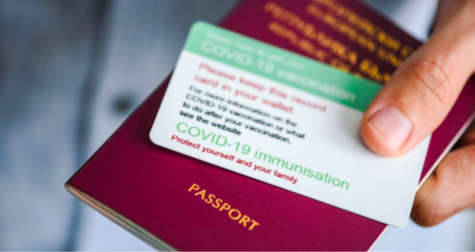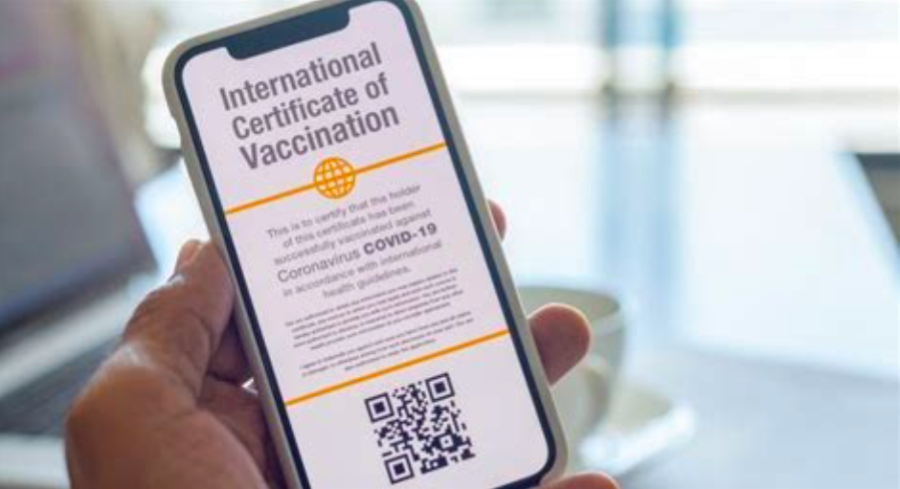Vaccine Passports: The New Normal?
What they are, what this means, and how they may also be tools of discrimination
April 28, 2021
One passport: stamped from your family trip to Cuba, has a sticker of the Eiffel Tower on the front, and contains a photo where your hair just did not cooperate. Another certifies your two COVID-19 vaccines that you got at your local CVS. With the number of administered coronavirus vaccines increasing each day, documentation of your vaccine may be crucial for returning to pre-pandemic activities.
What is a vaccine passport? Stored on a smartphone or device, a vaccine passport is a form of electronic documentation, similar to the physical card currently given out by the CDC after a patient’s first shot, that gives proof of the device owner having been vaccinated against the coronavirus. This new passport could come in the form of a QR code, an app, or a printed copy for those who may not have access to a mobile device. Widespread use of electronic vaccination passports would limit the forgery possible with the current handwritten vaccination slips. Mobile vaccine passports would include the patient’s administered batch and vaccine type, and would make it easy to inform and update users if new, urgent information came out about the shot they had received.

The possibilities with these new vaccination passports are endless: international travel can gain traction again without the need for the extremely long lines necessary for in-person checking of printed vaccination records; the arts industry can assure the vaccination of admitted movie and theater-goers efficiently; and access to many more events that involve a crowd can be streamlined. These passports are viewed by many, including the prime minister of Aruba, a country whose tourist industry was hit especially hard, as “the key to unlocking the world after a year of pandemic-induced lockdowns.”
While these passports could make travel more efficient, they might also pose significant logistical and equity challenges for people and countries across the globe. Because access to technology differs in various countries, if vaccination passports are adopted as a necessary form for travel, unequal access to technology could potentially prevent certain groups of people from traveling because they wouldn’t have the required passport. Leaders in the EU and Britain have been moving toward a nationwide use of these COVID-19 vaccination passports, but have been running into issues with legality, data privacy, and the technical framework of the system. Questions have also been raised in Japan as to whether these passports would cause discrimination, preventing access to events for people who cannot get a shot for medical reasons or who have chosen not to get vaccinated.
The world has adapted to massive change over the past year, and vaccination passports may just be the new front and the key of getting back to our favorite activities. Vaccine passports are an exciting new development for the world, and while we celebrate what they allow, we must also be cognizant of who they will allow this for.
Bibliography:
“Vaccine Passports Could Unlock World Travel And Cries Of Discrimination”. 2021. Nytimes.Com. https://www.nytimes.com/2021/04/09/world/europe/vaccine-passports-virus-issues-legal-ethical.html?action=click&auth=login-email&login=email&module=RelatedLi
“Vaccine Passports: What Are They, And Who Might Need One?”. 2021. Nytimes.Com. https://www.nytimes.com/2021/04/09/world/europe/virus-vaccine-passport.html.


